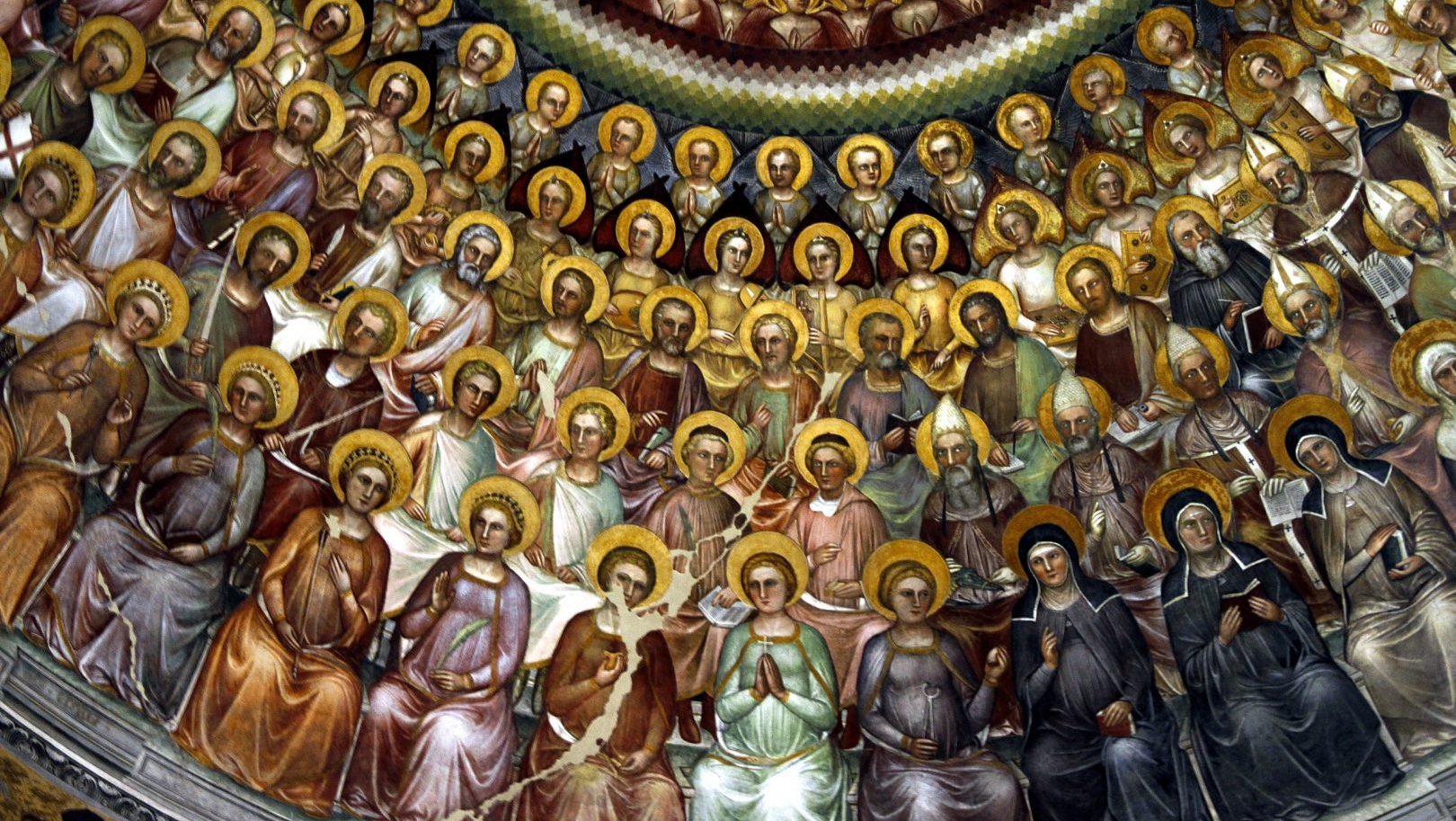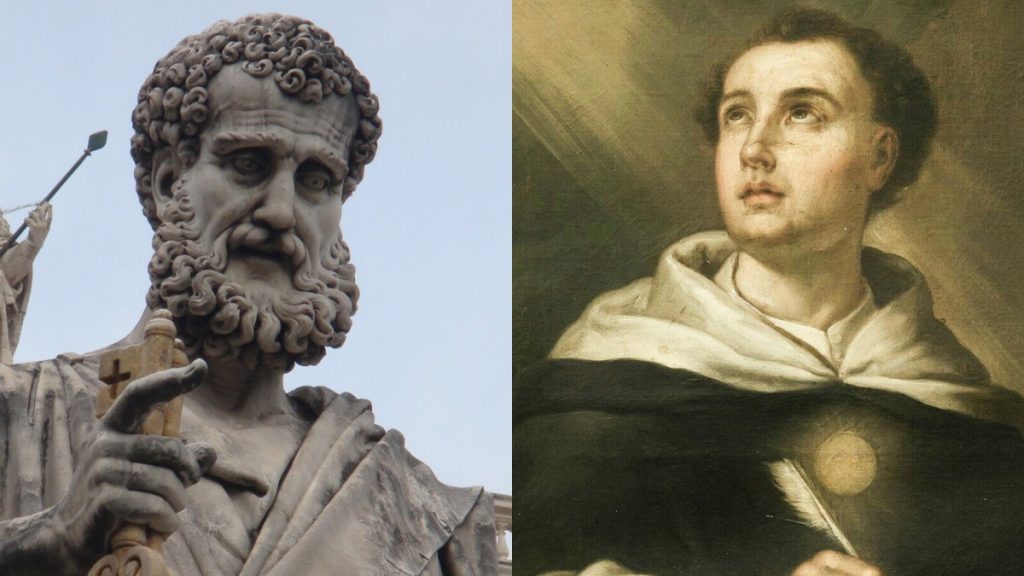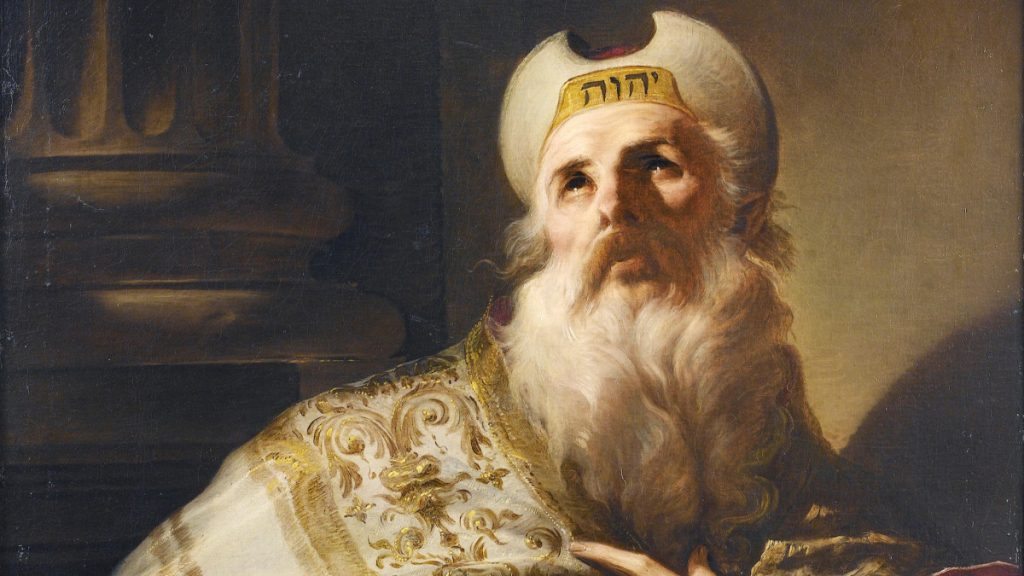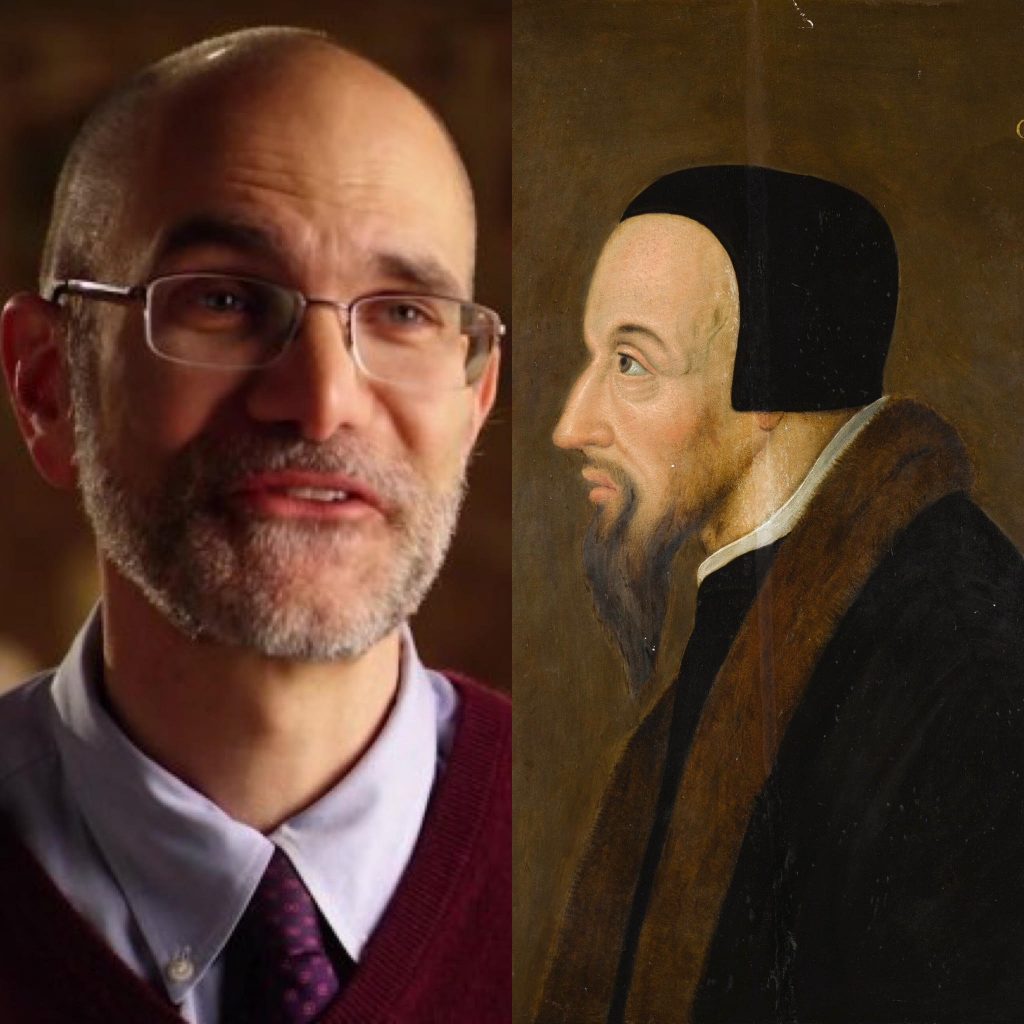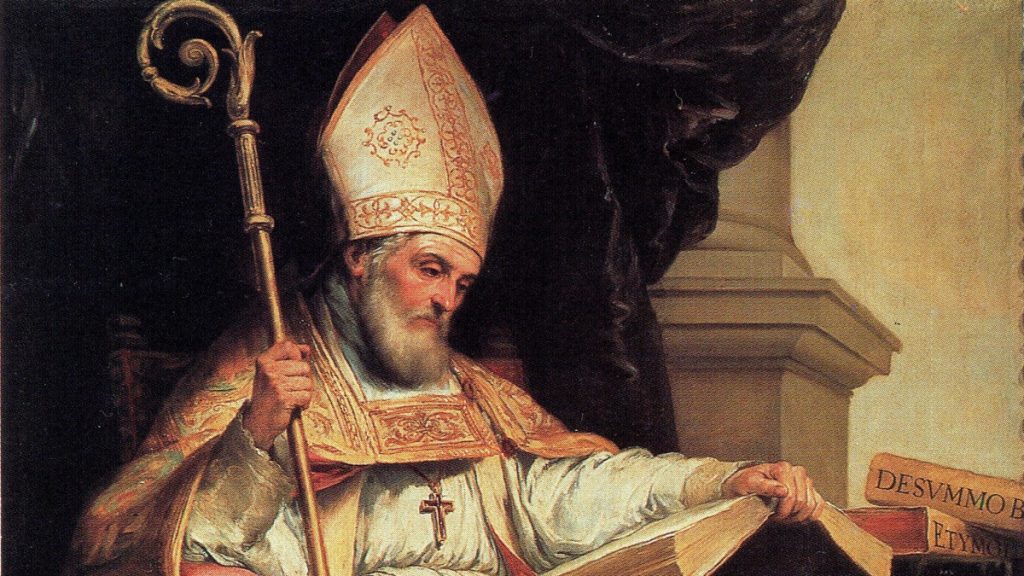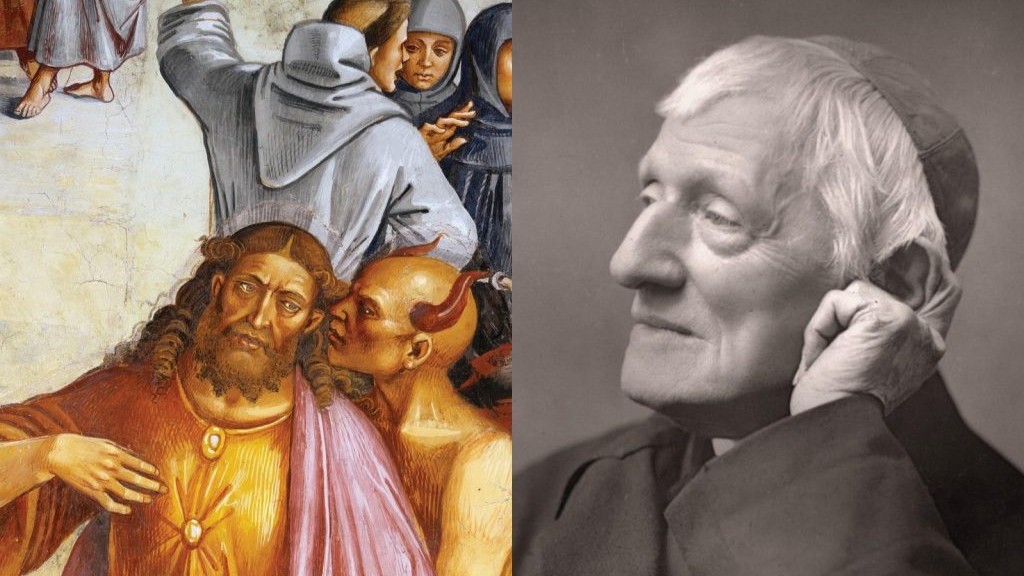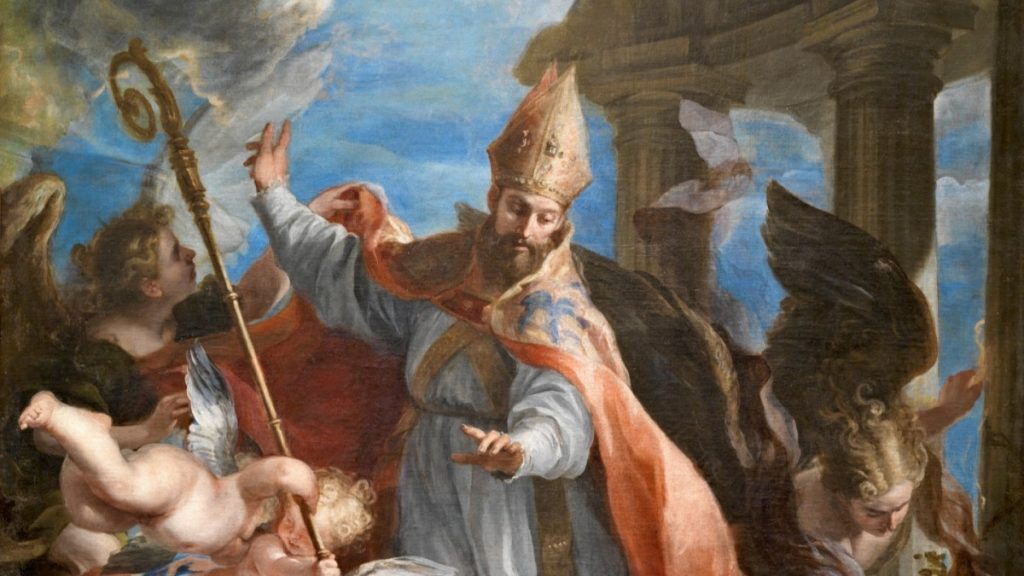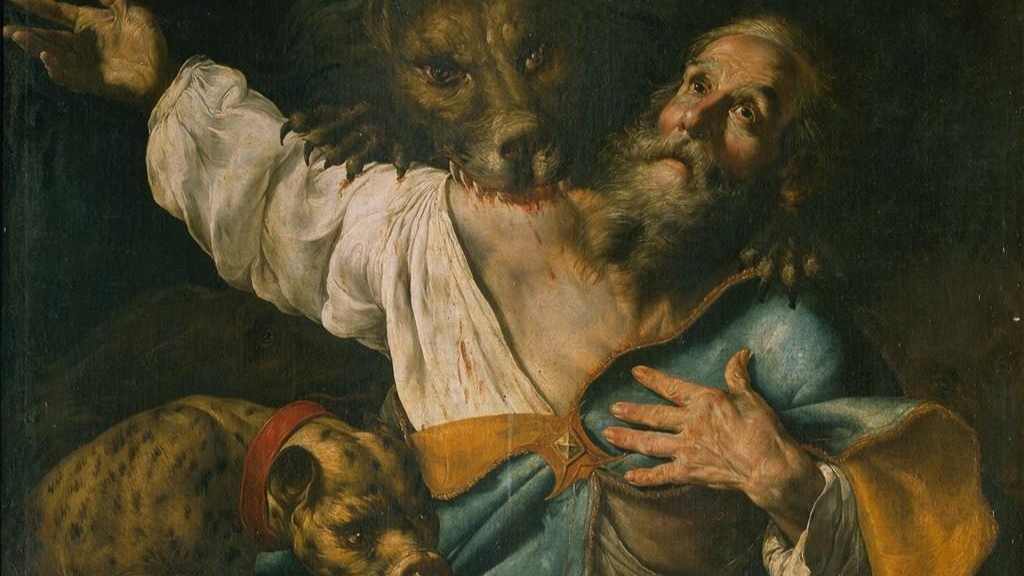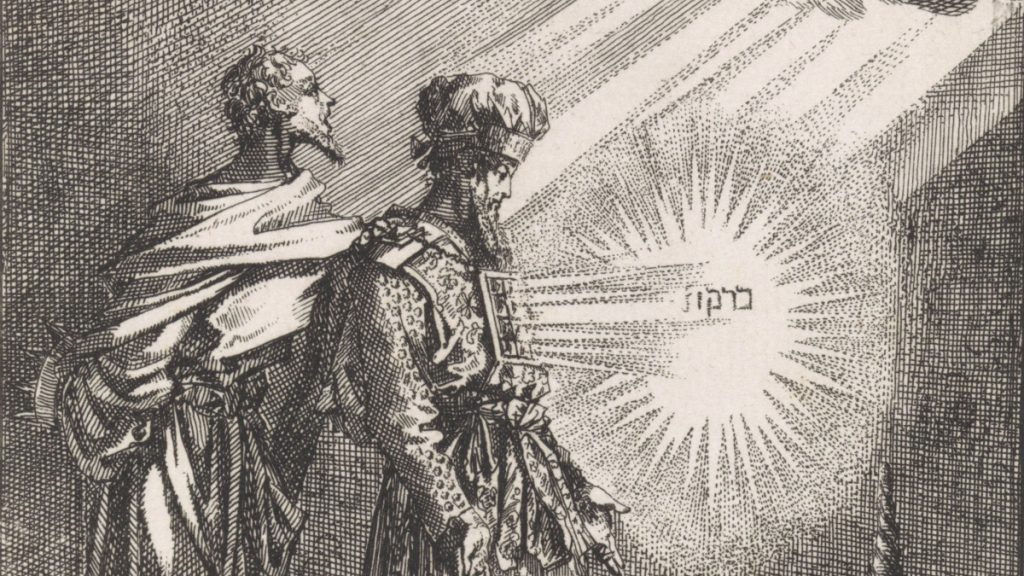(Updated April 11, 2025)
This Quote Archive is on the Communion of Saints. Each Archive is a treasury of original source quotes on various topics relevant to the Catholic Faith, and addressed in Becoming Catholic articles. They are intended to help people explore the “gold, silver, and precious gems” that have been mined and sifted from the sources of the Great Tradition by Eternal Christendom as a labor of love for our readers, and all seekers of Truth. They are periodically updated as more research is completed.
Some Quote Archives cover topics that include multiple sub-topics, in which individual quotes only address particular sub-topics. The Communion of Saints is one such topic. Therefore, in order to help readers more easily identify the sub-topics addressed in each quote, they will be listed in alphabetical order after each citation.
The sub-topics in this Quote Archive are:
- INTERCESSION (references to the saints interceding for us)
- RELICS (veneration of the saints’ relics, i.e. bodily remains, and attendant miracles)
Apostolic Era Documents
Shepherd of Hermas (c. 80)
[The Shepherd said] “But those who are weak and slothful in prayer, hesitate to ask anything from the Lord; but the Lord is full of compassion, and gives without fail to all who ask Him. But you, having been strengthened by the holy Angel, and having obtained from Him such intercession, and not being slothful, why do not you ask of the Lord understanding, and receive it from Him?”…
St. Clement of Alexandria (c. 150-c. 215) | EAST
St. Clement of Alexandria, Stromata
So is he [the Christian] always pure for prayer. He also prays in the society of angels, as being already of angelic rank, and he is never out of their holy keeping; and though he pray alone, he has the choir of the saints standing with him…
Origen (c. 184-c. 253) | EAST
Origen, Prayer (233)1
(Ch. 11, §§1-3, 5)
(§1) It is not only the High Priest who prays with those who truly pray, but also the angels who “have joy in heaven upon one sinner that doth penance, more than upon ninety-nine just who need not penance” (Luke 15:7), and also the souls of the saints who have passed away. This is clear from the case of Raphael offering a rational sacrifice to God for Tobias and Sara [Tob. 12:12]. For the Scripture says that after they had prayed, “the prayers of them both were heard in the sight of the glory of the great Raphael, and he was sent to heal them both” (Tob. 3:16-17). And Raphael himself, in revealing to them his 29 | 30 mission to them both, enjoined upon him as an angel by God, says: “When thou didst pray now, thou and thy daughter in law Sara, I offered the memory of your prayer before the holy one” (Tob. 12:12); and a little further on: “I am Raphael, one of the seven angels who bear up [the prayers of the saints] and enter before the glory of the holy one” (Tob. 12:15). And so, according to the word of Raphael, “prayer is good with fasting and alms and justice” (Tob. 12:8). And in the case of Jeremias [Jeremiah], who appears in the Maccabees as “admirable for age and glory” (2 Mac. 15:13) so that “an extraordinary dignity and greatness” was about him, and who “stretched forth his right hand and gave to Judas a sword of gold” (2 Mac. 15:15)–to him another holy man who had died [Onias, the High Priest] bore witness saying: “This is he that prayeth much for the people and for all the holy city, Jeremias the prophet of God” (2 Mac. 15:14).
(§2) And as knowledge is revealed to the saints “now through a glass in a dark manner,” but “then face to face” (1 Cor. 13:12), so it would be unreasonable not to employ the analogy for all the other virtues also, which if prepared already in this life will be perfected in the next. Now the one great virtue according to the Word of God is love of one’s neighbor. We must believe that the saints who have died have this love in a far greater degree towards them that are engaged in the combat of life, than those who are still subject to human weakness and are engaged in the combat along with their weaker brethren. The saying: “If one member suffer any thing, all the members suffer with it; or if one member glory, all the members rejoice with it” (1 Cor. 12:26), does not apply only to those who here on earth love their brethren. For one can quite properly say also of the love of those who have quit this present life: “…the solicitude for all the churches. Who is weak, and I am not weak? Who is scandalized, and I am not on fire?” (2 Cor. 11:28-29). And Christ Himself agrees with this, saying that with each of the saints that are sick, He also is sick, and in prison, and naked and a stranger and hungry and thirsty [Matt. 25:35-40]. Who is there that takes up the Gospel that does not know that Christ, by referring to Himself whatever befalls those who believe in Him, regards their sufferings as His own?
(§3) If the angels of God “came” to Jesus “and ministered to Him” (Matt. 4:11), and if it is not right for us to believe that this ministry of the angels to Jesus was for a short time only during His bodily sojourn among men, when He was still “in the midst” of those who believed, not as “he that sitteth at table” but as “he that serveth” (Luke 22:27), how many angels, do you think, minister to Jesus who wishes to “gather together the sons of Israel one by one” and assemble those of the dispersion and saves them that are in fear and “call upon Him” (Isa. 27:12; John 10:16; 11:52; Acts 2:21; Rom. 10:12; etc.)? And do they not contribute more than the apostles to the growth and increase of the Church, so that John says in the 30 | 31 Apocalypse that certain angels stand over the churches [Apoc. 1:20; 2:1, 8, 12, 18; 3:1, 7, 14]? Nor is it in vain that “the angels of God ascend and descend upon the Sons of man,” and are seen by eyes “illumined by the light of knowledge” (John 1:51; Hos. 10:12, LXX)…
(§5) We must not, therefore, think that when these things happen they happen by chance. For He who “has numbered all the hairs on the head” (Luke 12:7) of the saints brings together in harmony at the time of prayer both him who can do a service, giving ear to him who is in need of HIs benevolence, and the one who devoutly prays. In the same way we must suppose that the angels who are the overseers and ministers of God are present to one who is praying in order to ask him for what he petitions. The angel, indeed, of each one, even of the “little ones” in the Church, always “seeing the face of the Father who is in heaven” (Luke 18:10) and beholding the divinity of our Creator, prays with us and cooperates with us, as far as is possible, in what we seek.
Origen, Exhortation to Martyrdom2
(§30)
Let us remember also the sins that we have committed, and that except by baptism it is not possible to obtain remission of sins. But according to the laws of the Gospel one cannot be baptized twice in water and the spirit for the remission of sins. We are given, however, the baptism of martyrdom. Obviously it bears this name from the fact that to the text “Can you drink of the chalice that I drink?” there is subjoined “or be baptized with the baptism wherewith I am baptized?” (Mark 10:39). Note also that the baptism of martyrdom, as received by our Savior, atones for the world; so, too, when we receive it, it serves to atone for many. Just as they who assisted at the altar according to the law of Moses seemed to procure for the Jews remission for sins by the blood of goats and oxen, so the souls of believers that “are beheaded for the testimony of Jesus” (Apoc. 20:4), do not assist in vain at the altar of heaven, but procure for them that pray the remission of sins. And likewise we learn that as the High Priest Jesus Christ offered Himself in sacrifice, so the priests, whose leader He is, also offer themselves in sacrifice; for this reason one sees them at the altar as their proper place. But while some of the priests were without blemish and offered victims without blemish and so performed the divine service, others had blemishes such as are listed by Moses in Leviticus [Lev. 21:17-21], and were kept away from the altar. Who then is the priest without blemish who can offer a victim without blemish, if not he who bears witness to the last and fulfills every requirement of the concept of martyrdom? We have already spoken of him above [Christ].
St. Cyprian of Carthage (c. 210-258) | WEST
St. Cyprian of Carthage, Letter 56: To St. Pope Cornelius (252)
Let us remember one another in concord and unanimity. Let us on both sides always pray for one another. Let us relieve burdens and afflictions by mutual love, that if any one of us, by the swiftness of divine condescension, shall go hence the first, our love may continue in the presence of the Lord, and our prayers for our brethren and sisters not cease in the presence of the Father’s mercy…
St. Methodius of Olympus (died c. 311) | EAST
St. Methodius of Olympus, Oration Concerning Simeon and Anna (c. 300)
Hail to thee forever, thou virgin mother of God, our unceasing joy, for unto thee do I again return. Thou art the beginning of our feast; thou art its middle and end; the pearl of great price that belongest unto the kingdom; the fat of every victim, the living altar of the bread of life. Hail, thou treasure of the love of God. Hail, thou fount of the Son’s love for man. Hail, thou overshadowing mount of the Holy Ghost. Thou gleamedst, sweet gift-bestowing mother, of the light of the sun; thou gleamedst with the insupportable fires of a most fervent charity, bringing forth in the end that which was conceived of thee before the beginning, making manifest the mystery hidden and unspeakable, the invisible Son of the Father—the Prince of Peace, who in a marvelous manner showed Himself as less than all littleness. Wherefore, we pray thee, the most excellent among women, who boastest in the confidence of thy maternal honors, that thou wouldest unceasingly keep us in remembrance. O holy mother of God, remember us, I say, who make our boast in thee, and who in hymns august celebrate the memory, which will ever live, and never fade away. And do thou also, O honored and venerable Simeon, thou earliest host of our holy religion, and teacher of the resurrection of the faithful, be our patron and advocate with that Savior God, whom thou wast deemed worthy to receive into thine arms. We, together with thee, sing our praises to Christ, who has the power of life and death, saying, “Thou art the true Light, proceeding from the true Light; the true God, begotten of the true God”…
St. Cyril of Jerusalem (c. 313-386) | EAST
St. Cyril of Jerusalem, Catechetical Lecture 23 (c. 350)
Then [during the Eucharistic prayer] we commemorate also those who have fallen asleep before us, first Patriarchs, Prophets, Apostles, Martyrs, that at their prayers and intercessions God would receive our petition. Then on behalf also of the Holy Fathers and Bishops who have fallen asleep before us, and in a word of all who in past years have fallen asleep among us, believing that it will be a very great benefit to the souls, for whom the supplication is put up, while that holy and most awful sacrifice is set forth.
St. Gregory Nazianzus (c. 329-390) | EAST
St. Gregory Nazianzus, Oration 18: On the Death of His Father (374)
Yes, I am well assured that his intercession is of more avail now than was his instruction in former days, since he is closer to God, now that he has shaken off his bodily fetters, and freed his mind from the clay which obscured it, and holds intercourse naked with the nakedness of the prime and purest Mind; being promoted, if it be not rash to say so, to the rank and confidence of an angel…
St. Gregory Nazianzus, Oration 24: In Praise of St. Cyprian (380)3
(§19)
May you [St. Cyprian] watch over us from above in your mercy and give direction to our lives and words; and may you shepherd this holy flock, or help its shepherd, by warding off from it the ravening wolves who sniff after syllables and phrases [heretics] and by guiding it as much as possible for the best in all else; and by granting to us in greater fullness and clarity the radiance of the Holy Trinity at whose side you now stand, which we worship, which we glorify, whose existence is intimately bound up with our own through our worship of the Father in the Son and of the Son in the Holy Spirit, in whose presence we may in aftertime enter “pure and blameless,” and of which in perfection perfectly partake, in Christ himself our Lord, to whom be all glory, honor, and power forever and ever. Amen.
St. Ambrose of Milan (c. 340-397) | WEST
St. Ambrose, Hexameron (393)4
(Book 5, Homily 8, Ch. 24, §90)
But now it is fitting time [Holy Thursday] that this discourse be brought to an end–a time for silence or for tears, a time in which is celebrated the forgiveness of sins. For us, too, in our holy rites that mystical cock crows, as the cock of Peter did in our discourse. May Peter, who wept so well for himself, weep also for us and may the benign countenance of Christ turn toward us. Let there come upon us the Passion of the Lord Jesus which daily forgives us our sins and effects the office of remission.
St. Jerome (c. 342/347-420) | EAST/WEST
St. Jerome, Against Vigilantius (406)
(§§6, 8) | RELICS
(§6) …You say, in your pamphlet, that so long as we are alive we can pray for one another; but once we die, the prayer of no person for another can be heard, and all the more because the martyrs, though they cry for the avenging of their blood [Apoc. 6:10], have never been able to obtain their request. If Apostles and martyrs while still in the body can pray for others, when they ought still to be anxious for themselves, how much more must they do so when once they have won their crowns, overcome, and triumphed? A single man, Moses, oft wins pardon from God for six hundred thousand armed men [Ex. 32:30, et al]; and Stephen, the follower of his Lord and the first Christian martyr, entreats pardon for his persecutors [Acts 7:59-60]; and when once they have entered on their life with Christ, shall they have less power than before?…
(§8) Does the bishop of Rome do wrong when he offers sacrifices to the Lord over the venerable bones of the dead men Peter and Paul, as we should say, but according to you, over a worthless bit of dust, and judges their tombs worthy to be Christ’s altars? And not only is the bishop of one city in error, but the bishops of the whole world, who, despite the tavern-keeper Vigilantius, enter the basilicas of the dead, in which “a worthless bit of dust and ashes lies wrapped up in a cloth,” defiled and defiling all else. Thus, according to you, the sacred buildings are like the sepulchers of the Pharisees, whitened without, while within they have filthy remains, and are full of foul smells and uncleanliness. And then he dares to expectorate his filth upon the subject and to say: “Is it the case that the souls of the martyrs love their ashes, and hover round them, and are always present, lest haply if any one come to pray and they were absent, they could not hear?” Oh, monster, who ought to be banished to the ends of the earth! do you laugh at the relics of the martyrs, and in company with Eunomius, the father of this heresy, slander the Churches of Christ? Are you not afraid of being in such company, and of speaking against us the same things which he utters against the Church?…
St. John Chrysostom (c. 347-407) | EAST
St. John Chrysostom, Discourse 8: Against Judaizing Christians5
(Ch. 6, §8)
When you see that God is punishing you, do not flee to his enemies, the Jews, so that you may not rouse his anger against you still further. 227 | 228 Run instead to the martyrs, to the saints, to those in whom he is well pleased and who can speak to him with great confidence and freedom.
(Ch. 7, §7) (pgs. 231-32)
Your good deeds will not only bring praise to you but also rapid release from your sickness. The nobility of your choice will win God to even greater good will; all the saints will rejoice at what you have done; they will pray for you from the bottom of their 231 | 232 hearts.
St. John Chrysostom, Homily 26 on 2 Corinthians (c. 392)
For he that wears the purple [i.e. royalty] himself goes to embrace those tombs, and, laying aside his pride, stands begging the saints to be his advocates with God, and he that hath the diadem implores the tent-maker and the fisherman, though dead, to be his patrons. Wilt thou dare then, tell me, to call the Lord of these dead; whose servants even after their decease are the patrons of the kings of the world?
St. Augustine (354-430) | WEST
St. Augustine, Reply to Faustus the Manichaean (c. 400)
It is true that Christians pay religious honor to the memory of the martyrs, both to excite us to imitate them and to obtain a share in their merits, and the assistance of their prayers. But we build altars not to any martyr, but to the God of martyrs, although it is to the memory of the martyrs. No one officiating at the altar in the saints’ burying-place ever says, “We bring an offering to thee, O Peter! or O Paul! or O Cyprian!” The offering is made to God, who gave the crown of martyrdom, while it is in memory of those thus crowned. The emotion is increased by the associations of the place, and love is excited both towards those who are our examples, and towards Him by whose help we may follow such examples. We regard the martyrs with the same affectionate intimacy that we feel towards holy men of God in this life, when we know that their hearts are prepared to endure the same suffering for the truth of the gospel. There is more devotion in our feeling towards the martyrs, because we know that their conflict is over; and we can speak with greater confidence in praise of those already victors in heaven, than of those still combating here. What is properly divine worship, which the Greeks call “latria,” and for which there is no word in Latin, both in doctrine and in practice, we give only to God. To this worship belongs the offering of sacrifices [i.e. the Eucharist]; as we see in the word idolatry, which means the giving of this worship to idols. Accordingly we never offer, or require anyone to offer, sacrifice to a martyr, or to a holy soul, or to any angel. Anyone falling into this error is instructed by doctrine, either in the way of correction or of caution. For holy beings themselves, whether saints or angels, refuse to accept what they know to be due to God alone.
St. Augustine, Tractate 84 on the Gospel of John (c. 416-17)
This it was that the blessed martyrs did in their burning love; and if we celebrate their memories in no mere empty form, and, in the banquet at which they themselves were filled to the full, approach the table of the Lord, we must, as they did, be also ourselves making similar preparations. For on these very grounds we do not commemorate them at that table in the same way, as we do others who now rest in peace, as that we should also pray for them, but rather that they should do so for us, that we may cleave to their footsteps; because they have actually attained that fullness of love, than which, our Lord hath told us, there cannot be a greater. For such tokens of love they exhibited for their brethren, as they themselves had equally received at the table of the Lord.
St. Augustine, City of God (c. 419)
For the souls of the pious dead are not separated from the Church, which even now is the kingdom of Christ; otherwise there would be no remembrance made of them at the altar of God in the partaking of the body of Christ, nor would it do any good in danger to run to His baptism, that we might not pass from this life without it; nor to reconciliation, if by penitence or a bad conscience any one may be severed from His body. For why are these things practiced, if not because the faithful, even though dead, are His members? Therefore, while these thousand years run on, their souls reign with Him, though not as yet in conjunction with their bodies. And therefore in another part of this same book we read, “Blessed are the dead who die in the Lord from henceforth and now, saith the Spirit, that they may rest from their labors; for their works do follow them” (Apoc. 14:13). The Church, then, begins its reign with Christ now in the living and in the dead. For, as the apostle says, “Christ died that He might be Lord both of the living and of the dead.” (Rom. 14:9). But he mentioned the souls of the martyrs only, because they who have contended even to death for the truth, themselves principally reign after death; but, taking the part for the whole, we understand the words of all others who belong to the Church, which is the kingdom of Christ.
Other Documents
Ancient Christian Inscriptions6
Blessed Sozon gave back (his soul) aged nine years; may the true Christ (receive) your spirit in peace, and pray for us.
Gentianus, a believer, in peace, who lived twenty-one years eight months sixteen days, and in thy prayers ask for us, because we know that thou art in Christ.
Pray for your parents, Matronata Matrona. She lived one year, fifty-two days.
Atticus, sleep in peace secure in thy safety, and pray anxiously for our sins.
Aschandius, my father, beloved of my heart, with my sweet mother and my brothers, be mindful of your Pectorius abiding in the peace of the Fish [Christ]…
Rylands Papyrus 470 (c. 300)
Mother of God (hear) my supplications: suffer us not (to be) in adversity, but deliver us from danger. Thou alone.
Footnotes
- Origen, John J. O’Meara, trans., Ancient Christian Writers, Vol. 19: Origen, Prayer, Exhortation to Martyrdom (New York: The Newman Press, 1954), 29-31. ↩︎
- Origen, John J. O’Meara, trans., Ancient Christian Writers, Vol. 19: Origen, Prayer, Exhortation to Martyrdom (New York: The Newman Press, 1954), 114. ↩︎
- St. Gregory Nazianzus, Martha Vinson, trans., The Fathers of the Church, Vol. 107: St. Gregory Nazianzus, Select Orations (Washington, DC: The Catholic University of America Press, 2003), 156. ↩︎
- St. Ambrose, John J. Savage, trans., The Fathers of the Church, Vol. 42: Saint Ambrose, Hexameron, Paradise, and Cain and Abel (Washington, DC: The Catholic University of America Press, 1961), 225. ↩︎
- St. John Chrysostom, Paul W. Harkins, trans., The Fathers of the Church, Vol. 68: Saint John Chrysostom, Discourses Against Judaizing Christians (Washington, DC: The Catholic University of America Press, 1979), 227-28. ↩︎
- H.P.V. Nunn, trans., Christian Inscriptions (New York: The Macmillan Company, 1920), 15, 16, 18, 22. ↩︎
